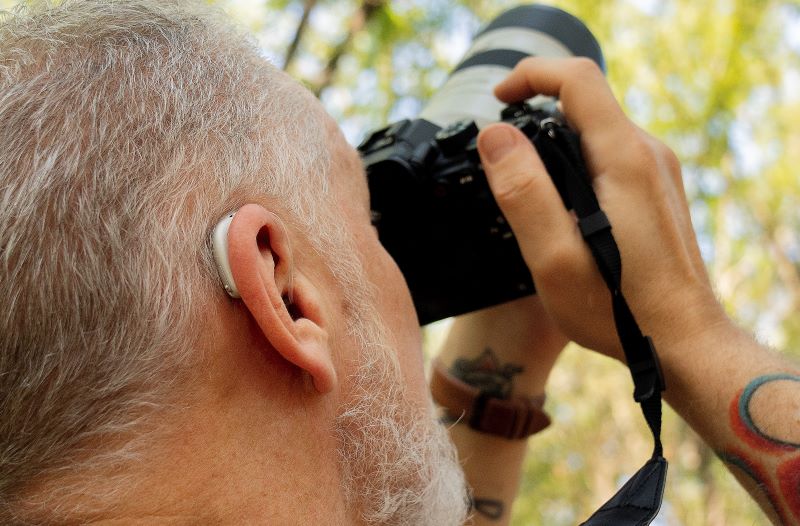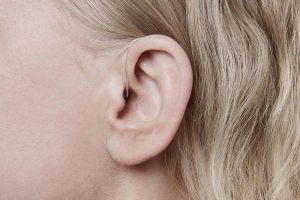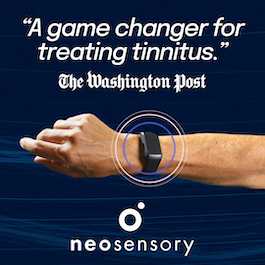|
www.HealthyHearing.com |
Hearing aid prices
By Mandy Mroz, AuD, President, Healthy Hearing Last updated on: September 6th, 2023 Find out about hearing aid prices, what is included in the cost and how an investment in better hearing can change your life. There's no way around it–hearing aid prices are high, and most people with hearing loss need two hearing aids. Making things more challenging is the fact that insurance providers may not cover the cost. 
you can ask your provider to add special settings, such as for birding or other unique soundscapes. The high price tag is often a barrier to getting the help and relief hearing aids provide, but it doesn't have to be. When it comes to cost, there's a lot to consider: Hearing aids are an important investment; these are devices you'll be wearing most of your waking hours, seven days a week. You do not want to skimp on a cheap brand that won't last or be durable, nor meet your unique needs. How much do hearing aids cost?The average price for a pair of adult hearing aids is about $2,000-$4,000. It can range from $1,000 on up to more than $4,000 for each device, depending on the level of technology. OTC hearing aids, which aren't suitable for everyone, have a lower price point. HearingLife, a large hearing clinic group, has a table that breaks down daily and monthly hearing aid prices by feature level for Oticon, a hearing aid brand. Basic hearing aids will cost less but have fewer features and customizable tools to help you hear better. For example, most today's premium hearing aids come with deep learning capabilities. For pediatric hearing aids, the price is often less, and frequently covered by insurance. CROS hearing aids, bone-anchored hearing aids and cochlear implants have different price points, as well. What is included in hearing aid cost?While hearing aid prices are high, it’s important to know that you are paying for far more than just the devices themselves. Your hearing aids may come with a bundle of hearing care appointments to follow-up and adjust your hearing aids as necessary. Bundled vs. unbundled servicesYour prescription hearing aid purchase typically includes the hearing test, consultation, initial fitting, and all follow-up adjustments, routine cleanings and a warranty that can range from one to three years. This is known as bundled pricing. Hearing aid warranties often cover all repairs and includes a one-time replacement policy if you lose a hearing aid. Some hearing care professionals also include a supply of hearing aid batteries to get you started. 
the technology has gotten far more advanced. Why is bundling so common? Your hearing ability may change, your hearing aid may need repair and you may have questions occasionally. You are making an investment in the professional as well as the hearing aid technology. Still, some clinics may "unbundle" the hearing care costs from the cost of the hearing aids. In this pricing structure, you may be able to pick which services you want to purchase upfront, like a loss and damage warranty, and which you want to pay for as you go, like cleaning services for your hearing aids. For people who buy OTC hearing aids, they may benefit from finding a provider who offers these a la carte services. Either way, be sure to ask your hearing care professional what is included in the price of the hearing aids so you fully understand what you are purchasing. Factors that affect hearing aid pricesThe main factor that affects the purchase price of the hearing aid is the technology level and features included. As is true with most consumer electronics, technological sophistication gets less expensive over time, and this has certainly happened in the hearing aid business. While the overall prices of hearing aids have remained steady, the technology you can get for the price is far greater currently than it was even just two years ago. What was once considered a top-of-the-line hearing aid is now considered basic technology. All hearing aid manufacturers strive to offer devices that meet the needs of patients and their budgets. To do this, nearly every product line consists of multiple performance levels or price points. The most advanced level will contain all of the latest and greatest features like the most advanced noise reduction circuitry and wireless capabilities. Lower performance levels will contain fewer and less sophisticated features as the price decreases. Why do hearing aids cost so much?Hearing aid pricing includes the cost of the device itself as well as the services of the professional. Some of the cost in manufacturing hearing aids is from the research needed to continue making technology advancements each year. Each year, hundreds of millions of dollars are spent by the industry to improve how these devices perform. These investments have led to hearing aids that serve people better. 
final cost of hearing aids, such as follow-up appointments and routine cleanings. Here’s another way to think about the price of hearing aids. If your hearing aids cost $6,200, and they have a lifespan of eight years, they will cost you approximately $775 per year, $64 per month or $2.15 per day. In other words, while the total amount is high, the ongoing usage price is more reasonable. Monthly, it is about what you would pay to get satellite or cable television. When you consider the communication, relationship, and health benefits you get from wearing hearing aids, most people agree that it is well worth it. OTC hearing aidsOver-the-counter hearing aids come in a wide range of prices. Models that are comparable to prescription hearing aids in quality and features are about $1,000-$2,000 per pair, but do not come with the bundled care and expertise of hearing care provider. Online and mail order hearing aidsYou can purchase a lot of things cheaply online. If you have a mild hearing loss, you may be tempted to buy a personal sound amplification product (PSAP) from a website, often called "hearing amplifiers" or even "hearing aid amplifiers." This product is similar to the eyeglass “cheaters” available at a corner drugstore. However, age-related hearing loss is more complex than age-related vision loss. These cheaper products tend to boost all sounds, not just the ones you can't hear. At a hearing clinic, your hearing aids are calibrated specifically to your unique hearing loss, and any other issues you may have, like tinnitus. Clinics also can pre-program your hearing aids to switch settings when you're in different environments. And, if your services are bundled together, you can go back when you need to for refinement or cleanings. Financial assistance and insurance coverageThe most recent data have shown that about 40 percent of Americans have some form of third-party payment that helps to pay for hearing aids. Check with your insurance provider to see if you have a benefit and if so, the amount of that benefit. Most plans that include hearing aids cover only a certain amount of the aids (on average about 85 percent of the cost) every few years. If you have a served in the US military, you might be eligible for hearing aids through the Department of Veteran’s Affairs (VA). When you qualify, the VA normally pays for everything associated with the hearing aid, including a supply of batteries. There are other options for hearing aid funding, including low-interest loans, credit cards and same-as-cash financing plans for medical devices. Review Healthy Hearing's information on hearing aid insurance, Medicare and the Veteran’s Affairs for more information. Then, talk with your hearing care provider about your options for financing and coverage. There may be local charities or sources of financing that will apply to your situation. Why should I buy hearing aids?When deciding whether or not to spend your hard-earned money on hearing aids, consider too the financial impact of not spending that money on hearing aids. It is nearly impossible to put a price on the missed conversations with your spouse, family, friends and colleagues.
Also missing if you have hearing loss are some of the beautiful and important sounds of life: The laughter of your grandchildren, cheerful bird songs, raindrops falling softly outside your window, your doorbell, the car’s turn signal and the timer on your oven. If you are still working, you are also losing money due to your hearing loss. A study by the Better Hearing Institute looked at more than 40,000 households and found that untreated hearing loss reduced income on average by $12,000 per year and on the high end, up to $30,000 a year. The good news is that wearing hearing aids can mitigate the effects of that by 50%. That’s a good return on your investment. Hearing health is brain healthThe science is clear: Hearing aids are good for your overall health. Buying hearing aids is an important investment in your quality of life, working career, relationships and overall health. The right hearing care professional will understand your hearing loss as well as your financial situation. Don't put off this important step in your quality of life. Check out our directory to find a hearing aid clinic near you. Mandy Mroz, AuD, President, Healthy Hearing
You are reading about: Related topics
More information about hearing loss, hearing aid brands, assistive devices and tinnitus. Featured clinics near me
Hearing Health Solutions from Ohio ENT - Columbus
Earzlink Hearing Care - Reynoldsburg Find a clinicNeed a hearing test but not sure which clinic to choose? Call 1-877-872-7165 for help setting up a hearing test appointment. Related contentThe Healthy Hearing Report |
|
www.HealthyHearing.com |
Hearing aid prices
By Mandy Mroz, AuD, President, Healthy Hearing Last updated on: September 6th, 2023 Find out about hearing aid prices, what is included in the cost and how an investment in better hearing can change your life. |



 Dr. Mandy Mroz earned her doctorate in audiology from the University of Florida. Mandy’s career is guided by her dedication to serving people with hearing loss and her past experience in hearing research, training and management.
Dr. Mandy Mroz earned her doctorate in audiology from the University of Florida. Mandy’s career is guided by her dedication to serving people with hearing loss and her past experience in hearing research, training and management.